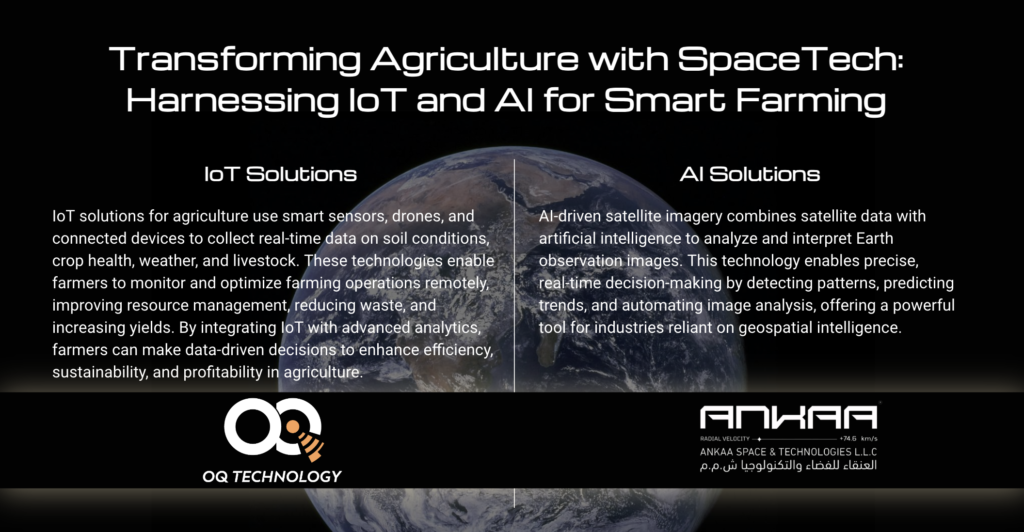Transforming Agriculture with SpaceTech: Harnessing IoT and AI for Smart Farming

Space technology, once confined to the realm of exploration and communication, is now making a significant impact on industries far below. One such sector that has seen a transformative shift is agriculture. By harnessing the power of satellites, sensors, and artificial intelligence, space-based solutions are revolutionizing how farmers manage their crops, monitor environmental conditions, and ensure sustainable practices.
IoT and Sensors for Ecosystem Preservation

One prime example of space technology aiding agriculture is the use of Internet of Things (IoT) devices and sensors for ecosystem monitoring. OQ Technology, for instance, has successfully deployed such solutions to safeguard mangrove forests in Saudi Arabia. These vital ecosystems play a crucial role in coastal protection, carbon sequestration, and biodiversity conservation. By collecting data on temperature and humidity, OQ Technology’s system provides valuable insights into the health of the mangrove forests, enabling timely interventions to address potential threats.
AI-Powered Satellite Imagery for Precision Agriculture
Another groundbreaking application of space technology in agriculture is the use of artificial intelligence (AI) to analyze satellite imagery. Companies like Ankaa Space & Technologies are leveraging AI algorithms to extract meaningful information from high-resolution satellite images. This data can be used for a variety of agricultural applications, including:
- Crop Health Monitoring: Identifying areas of stress, disease, or nutrient deficiencies in crops.
- Yield Prediction: Estimating crop yields based on factors like plant growth and weather conditions.
- Pest and Disease Control: Detecting and tracking the spread of pests and diseases.
- Irrigation Management: Optimizing water usage by identifying areas that require irrigation.
Benefits of Space-Based Agricultural Solutions

AI satellite imagery by Ankaa
The integration of space technology into agriculture offers numerous benefits, including:
- Increased Efficiency: Automation and data-driven decision-making reduce labor costs and improve operational efficiency.
- Improved Sustainability: Precise monitoring and management of resources help minimize environmental impact and promote sustainable practices.
- Enhanced Food Security: Accurate forecasting and early warning systems can help mitigate risks to crop production and ensure food security.
- Economic Growth: Space technology-enabled agriculture can drive economic development in rural areas and create new job opportunities.
As space technology continues to advance, we can expect to see even more innovative applications in the agricultural sector. From precision farming to disaster response, space-based solutions are poised to play a vital role in addressing the challenges of a growing global population and ensuring a sustainable future for agriculture.
You can find more solutions for agriculture in our previous article SpaceTech Revolutionizing Agriculture: How IoT and Earth Observation Helps Farmers.
To find more solutions for agriculture, please visit our marketplace: https://platform.space-marketplace.com/


